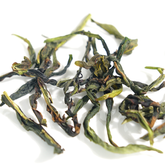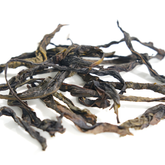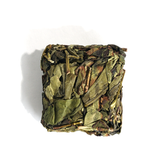Does hot tea dehydrate you?|NPTEA
Does Drinking Tea Cause Dehydration?
Many people worry that drinking hot tea, especially those containing caffeine, might lead to dehydration because caffeine has a mild diuretic effect. However, this is not entirely true. Moderate caffeine intake has a negligible impact on dehydration, and the water content in tea is more than enough to replenish the body's needs. In fact, not only does tea not cause dehydration, but it also offers numerous health benefits.

In China, drinking tea is incredibly common and has an irreplaceable role in both households and social settings. For example, friends often gather over tea, and it’s customary to serve tea during business meetings. After meals, many Chinese families enjoy tea to help with digestion and ease the discomfort caused by heavy, oily dishes.
Caffeine and Dehydration
While caffeine does have a diuretic effect and you might find yourself using the restroom more often after drinking tea, the effect is very mild when tea is consumed in moderation. Research shows that significant diuretic effects only occur with high doses of caffeine. For cold-brewed teas, the caffeine content is even lower, so there’s even less to worry about in that regard. For most people, drinking 3 to 4 cups of tea a day won’t lead to dehydration. On the contrary, the water in tea effectively hydrates the body while also providing soothing benefits. Therefore, hot tea doesn't cause dehydration and is actually one of the healthiest drinks. Chinese tea, in particular, is free from any additives like artificial flavors or colors, making it the best natural beverage besides water.

Health Benefits of Drinking Tea
-
Rich in Antioxidants
Tea is rich in polyphenols, especially catechins, which are powerful antioxidants. These compounds help neutralize free radicals in the body, reducing oxidative stress and preventing diseases while also slowing down aging. Tea from China, especially Yunnan, is particularly high in these beneficial compounds. -
Promotes Heart Health
Numerous studies suggest that long-term tea consumption, particularly green tea and oolong tea from Fujian, China, can help lower the risk of heart disease and stroke. This is due to the catechins and flavonoids in tea, which can help lower blood pressure, improve vascular function, and reduce cholesterol levels. -
Boosts Metabolism
The caffeine and tea polyphenols in tea, especially green tea, can help boost your metabolism and promote fat oxidation, making it easier to maintain or lose weight. For those looking to keep fit or shed a few pounds, tea is an excellent choice. -
Aids Digestion
In traditional Chinese medicine, pu-erh tea and oolong tea are believed to aid digestion. Drinking these teas after meals can help break down fats, promote intestinal movement, and ease the digestive burden, reducing issues like indigestion. -
Enhances Immunity
The antioxidants and anti-inflammatory compounds in tea help boost the immune system, particularly white tea from China, which can help ward off viral infections, colds, and other diseases. Tea polyphenols also have mild antibacterial properties, helping the body fight off certain pathogens.

Conclusion
Drinking hot tea not only won’t cause dehydration but also offers numerous health benefits. The water content in tea hydrates the body, while the antioxidants, caffeine, and other beneficial compounds in tea help boost metabolism, protect the heart, enhance immunity, and aid digestion. As long as tea is consumed in moderation, Chinese tea is one of the healthiest and most natural beverages available. In China, even 5-year-old children drink tea daily with their parents, which speaks to the cultural and health significance of this beverage.
If you want to learn more about the amazing world of Chinese tea and its health benefits, make sure to explore our NPTEA blog for more insights.
SEE MORE
If you have questions about selecting tea:
Learn-more-about-chinese-tea
If you have questions about the benefits of tea:
Health-benefits-of-chinese-tea
If you have questions about brewing tea:
How-to-brew-loose-leaf-tea






